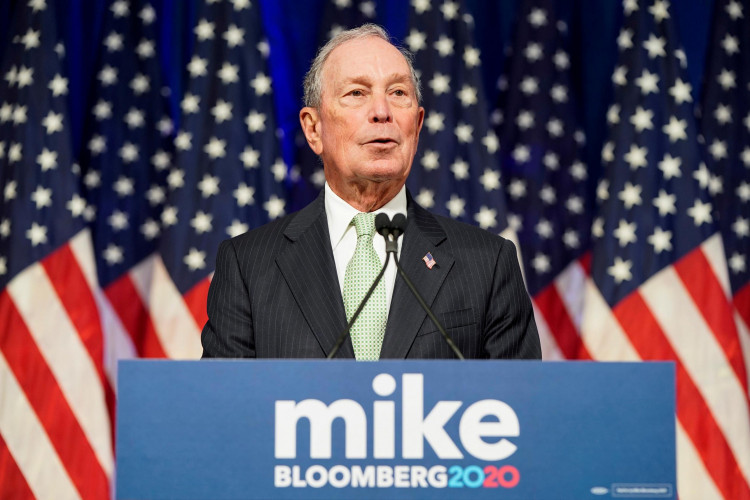Michael Bloomberg announced that he would increase taxes on rich people, raise corporate tax rate, and hold back tax-free provisions of large properties, elements of a tax measure that the tycoon says would produce $5 trillion in the next 10 years.
However, he stressed that tax rates on low-income and middle-class Americans covered by the 2017 Republican Tax Law would remain the same.
Bloomberg's tax proposition serves to show how he would pay for a host of new spending initiatives, which so far exceed $3 trillion. But his plan of action cautioned that the tax measure could still be revised as the billionaire unveils more policy plans in the coming months.
The tax revamp would also shut down ambiguities that the wealthy can take advantage of, based on the plan's blueprint, which would fight income disparity, and give more premium on employment training, education, infrastructure projects, healthcare, among other important matters.
According to the former New York City mayor, his tax proposal will make the tax code "more progressive," adding that being "a wealthy guy," he didn't need any tax cut. In a statement, he also pointed out that he is willing to give almost all of his company's earnings to charity.
Bloomberg's tax campaign did not specify the amount that it would generate from its surtax on earnings above $5 million per year, although he said it would only impact less than 0.1 percent of American taxpayers.
Like his fellow moderate political wannabe Joe Biden, Bloomberg thinks US President Donald Trump's Tax Cuts of 2017 went overboard. The two politicians want to increase the corporate tax rate up to 28 percent, after Trump reduced it from 35 percent to 21 percent.
Bloomberg -- who is worth more than $59 billion -- courted business leaders as part of his campaign and made it clear that the tax measure he is rolling out will increase rates on wealthy Americans and corporations, curb tax evasion, expand property tax, and trim down tax benefits that investors have over workers.
The 2020 presidential hopefuls have seized on mass sentiment for hike in taxes, particularly for the rich, after the 2017 Republican tax law failed to earn the public's support and partially contributed to Democrats controlling majority seats in Congress during the 2018 midterms.
Bloomberg has introduced over 20 tax plans that cover healthcare, climate change and the economy since he joined the race on November 24, but he has yet to lay down cost estimates in most cases, which included spending more than $3 trillion over the next decade. But there are plenty of other policy elements in the proposal with no definite price tags.






